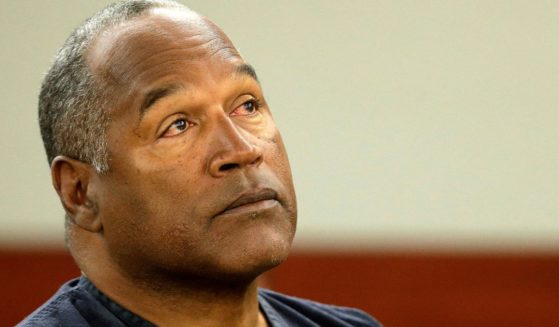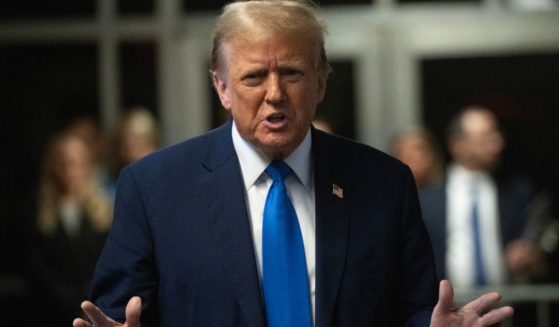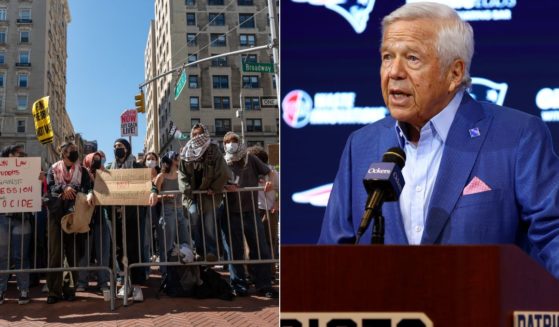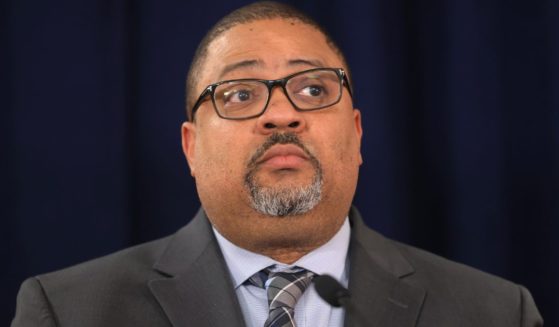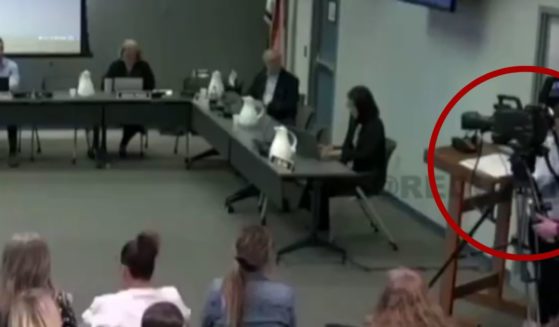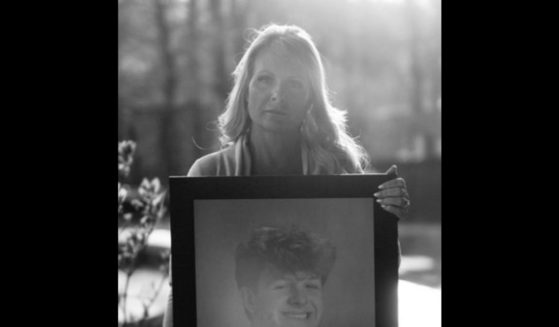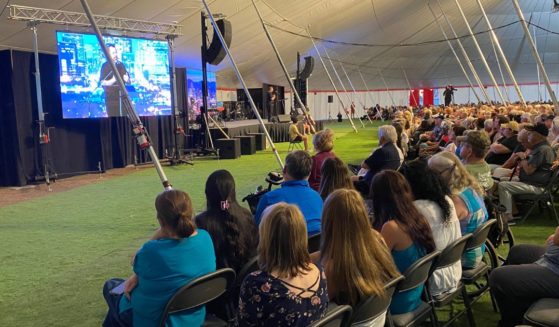Leftist Neighborhood That Vowed To Not Call the Police Now Facing 300-Person Homeless Camp
It sounded like such a great idea, didn’t it?
In the city where George Floyd died after a police officer knelt on his neck for nearly nine minutes, the city where protests over his death began, the residents of one neighborhood renowned for its leftist politics began agreeing they wouldn’t call police, according to The New York Times.
This would put black people in danger, residents said, the same way George Floyd was put in danger over a trifle like alleged counterfeit money. Instead, residents of Powderhorn Park — a bohemian, tree-lined corner of Minneapolis close to where Floyd died — would either ignore the issue or call social organizations.
What sounds good doesn’t work out in practice, however. Just a few weeks after Floyd’s death began nationwide protests, a homeless encampment in a neighborhood park has some residents rethinking their commitment to not dialing 911.
The Times describes a 300-strong homeless population in the park, comprised of people who were displaced during the protests and who began amassing there two weeks ago. The encampment, Caitlin Dickerson wrote in the Wednesday piece, “seems to grow larger and more entrenched every day. They do laundry, listen to music and strategize about how to find permanent housing. Some are hampered by mental illness, addiction or both.
“Their presence has drawn heavy car traffic into the neighborhood, some from drug dealers. At least two residents have overdosed in the encampment and had to be taken away in ambulances.”
This has understandably thrown residents off, although the headline states the “Neighborhood Vowed to Check Its Privilege.” (It’s never quite made evident how the decision to take this vow was reached, but that’s the premise and we’ll go with it.)
Shari Albers, who used to call the police regarding gang activity and prostitution in the neighborhood in her role as a block club leader, was one of the people who pledged to swear off law enforcement. She now describes having visions of encampment members forcing their way into her home and having to defend herself with a baseball bat.
“I am afraid,” Albers said. “I know my neighbors are around, but I’m not feeling grounded in my city at all. Anything could happen.”
According to the Star Tribune, the encampment originally sprung up when the owner of an abandoned Sheraton evicted homeless individuals who had appropriated it as an autonomous shelter. A Vice article on the takeover said that the former hotel had “been managed like a commune as residents are running their own meetings where they collectively determine their needs and wants, and communicate them with volunteers.”
Somewhere along the line, this arrangement went wrong. There’s some question as to whether or not residents or looters caused the damage you see here, but either way, conditions inside the former hotel had deteriorated gravely:
I spoke to a mother who came here looking for her daughter, to bring her food and a tent. She was in tears saying “this is just like out of a horror movie.” pic.twitter.com/MUW1U3CkmP
— Max Nesterak (@maxnesterak) June 11, 2020
After the Sheraton residents moved into Powderhorn Park, police served them with an eviction notice, giving them 72 hours to leave. The Minneapolis Park and Recreation Board of Commissioners decided against kicking them out, however, and set up running water, portable bathrooms, electricity, showers and trash bins.
The homeless have taken over Powderhorn Park in south Minneapolis. In response, the City Park Board approved this behavior in all city parks. pic.twitter.com/unt3xkANLm
— Kyle Hooten (@KyleHooten2) June 19, 2020
They’re letting the homeless stay in the city’s parks for the moment, although the board has stressed the need for housing.
“We realize that this is not a permanent solution, so we are asking the City of Minneapolis, Hennepin County and State of Minnesota to step up and find a sustainable, dignified housing solution for folks who are experiencing homelessness right now,” a statement from the board said, according to the Southwest Minneapolis, MN Patch. “In the meantime, we are not going to push people out of public spaces when they have nowhere else to go.”
For right now, residents are dealing as best they can.
Carrie Nightshade, a 44-year-old mother of two, said she no longer feels safe letting her children play alone in the park.
“I’m not being judgmental,” she told The Times. “It’s not personal. It’s just not safe.”
Nightshade is described in the article as taking part in a meeting of five women who live in adjacent houses. Just in case you were concerned about the racial breakdown of this small conclave, Dickerson noted that four of them are white.
“Angelina Roslik burst into tears, explaining that she had spent the past four years fleeing unstable housing conditions and was struggling more than she cared to admit with the chaos the camp had brought into the neighborhood,” she wrote. “Linnea Borden said she had stopped walking her dog through the park because she was tired of being catcalled. ‘My emotions change every 30 seconds,’ said Tria Houser, who is part Native American.”
The women agreed that they wouldn’t call police and would instead rely on the American Indian Movement, an organization founded in Minneapolis in 1968 by Native Americans. The group, which skews heavily left, already polices its own community.
The women agreed they’d let property damage slide.
Other residents of the community have experienced more pressing issues than property damage.
Joseph Menkevich, a white man who lives two blocks from the park, described finding a black man with a hospital bracelet in his apartment building’s elevator, passed out. After not being able to reach a community activist, he ended up caving and calling 911. Even though he requested an ambulance and not police officers, what he got was a white cop who “checked the situation out briefly and then returned to his squad car,” according to The Times.
“It didn’t resolve in a way that I had hoped,” Menkevich said. “All they did was offer to bring him back to the hospital. He refused, so they kicked him out on a rainy night.”
Meanwhile, Mitchell Erickson said that he called the police after he was cornered by teens who pointed a gun at his chest and demanded the keys to his car. He said he was so flustered he gave them the keys to his home. After being frustrated by their inability to get into Erickson’s car, they left the scene and stole another vehicle, instead.
Erickson said getting cops involved was a bad decision.
“Been thinking more about it,” he told The Times via text. “I regret calling the police. It was my instinct but I wish it hadn’t been. I put those boys in danger of death by calling the cops.” Erickson also said he refuses to cooperate with prosecutors in a case against the young men.
But wasn’t his life in danger? And the lives of other people?
“Yeah I know and yeah it was scary but the cops didn’t really have much to add after I called them,” he said. “I haven’t been forced to think like this before. So I would have lost my car. So what? At least no one would have been killed.”
There’s an interesting sentence in that text: “I haven’t been forced to think like this before.” You can definitely read that two ways.
That’s the ultimate issue with The Times’ article, which has its obvious sympathies. George Floyd’s death was an outlier; crime generated by a homeless encampment isn’t. Dickerson treats the subject as if it were the other way around.
The residents of Powderhorn Park are undergoing “self-examination,” Dickerson wrote.
Albers now feels bad about reporting crime in the neighborhood in her role as a block club leader because it might have led to gentrification.
Her daughter, who “began a concerted effort last year to challenge her own privileges by taking a class on racial biases,” said that her “feeling around [the homeless encampment] is those are symptoms of systemic oppression … [a]nd that’s not on them.” She also views her decision to buy a house in the neighborhood as a bad one because it might have prevented a minority individual from buying it.
This is perfectly fine, if horribly misguided. That doesn’t mean you shouldn’t call the police when someone sticks a gun in your chest, no matter what the dynamics of oppression were.
Mind you, that’s what the article wants you to think about, obsessively cataloguing the race of everyone in the article. (Who cares if the policeman who responded to the black man passed out in the elevator was white? Would things have turned out differently otherwise?) Perhaps that’s what most Times subscribers will think, too.
Others will have a much different takeaway: This is a situation where police involvement is necessary, however dangerous or odious you might believe law enforcement to be.
The American Indian Movement isn’t an effective substitute for effective policing. Neither is letting attempted armed car robbery slide as if it were a kid pilfering a candy bar from a store.
When you don’t report a crime like that, there’s a good chance the perpetrators going to rob someone else with that gun, and perhaps their frustration with getting the wrong set of keys doesn’t end so harmlessly then.
Again, it’s not entirely clear from Dickerson’s article how members of the community reached the decision to not call police or how they plan to maintain it. What is clear — unintentionally — is that it’s a bad decision. The homeless encampment isn’t going anywhere, from the sound of things. The tacit point Dickerson’s article admits to is that, whether you like to like it or not, that’s going to raise the crime rate in the neighborhood and stress community resources.
Dickerson noted that the people of Powderhorn Park are volunteering in substantial numbers — serving meals, delivering medical care and patrolling the park to make sure the homeless are kept safe. That’s both good and necessary. So are the police.
I know, this runs counter to the woker-than-thou assertion that defunding the police and reducing their role in society will somehow end well. The idea that this is how you end up with situations like this in the first place is never seriously considered. Neither is the fact that, if other neighborhoods adopt this strategy, they could end up with the same problem.
Perhaps The Times is saving that for another installment on Powderhorn Park and its left-wing activists, but I’ll admit to being doubtful.
Truth and Accuracy
We are committed to truth and accuracy in all of our journalism. Read our editorial standards.

